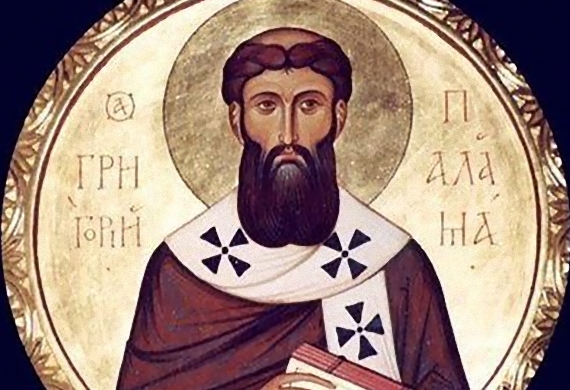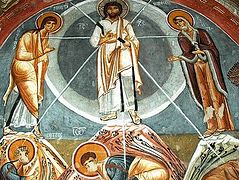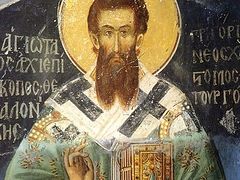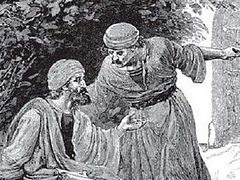The Orthodox spiritual tradition is remarkably rich. Many ascetics left behind instructions and descriptions of their experiences, or the experiences of their mentors and predecessors. They wrote hundreds and hundreds of volumes… One person couldn’t read all of this spiritual literature over the course of his whole life.
These volumes on Christian asceticism were certainly not left by any graphomaniacs; therefore, the writings of these ascetics were nearly always “forced.” The author would be asked to explain something, and so he wrote. His answer would be read, taken note of, and preserved, and the library of Orthodox spiritual literature would be augmented with one more “unit of storage.” As the authors had practical goals—to help their addressee—the writings of the ascetics mainly speak about the beginning stages of spiritual ascent. After all, their addressees were novice ascetics.
However, there is an exception to this general rule (and what an exception!): the renowned Triads of St. Gregory Palamas. In this book, the holy hierarch interprets the high experience of the spiritual life. Why high? It was again compelled. There was one educated monk who pounced on the high experience of the Athonite hesychasts with sharp criticism. St. Gregory, himself being an educated monk, wrote The Triads In Defense of the Holy Hesychasts in response. Who are the hesychasts?
***
Hesychasm is not just the practice of silence (like the well-known “vow of silence”), but a special experience: sacred silence—that is, silence of the mind from passionate thoughts. St. Gregory reflects upon the very highest experience of silence.
In many writings of the ascetics, much attention is devoted to the battle with the passions and repentance, only barely speaking of the higher aspect of the life of the hesychast. The Triads continues the conversation about spiritual ascent, explaining what it means to bring the mind into the heart, and even about the very highest stages of the spiritual ascent. In this sense, The Triads as if completes the body of Orthodox ascetical writings.
Why ascetics write about the battle with the passions is clear, and it’s clear that the battle with the passions is directed towards having the passions “subside” (as if “remaining silent”) in a man, and not prevent him from living with Christ. This is perfectly achieved only in the experience of passionlessness. Such experience is rightly considered the height of the ascetic path.
But there were ascetics who had even higher experiences, extremely high. This is the experience of pure prayer and contemplation of the Uncreated Light. This contemplation was the target of the relentless criticism of Athonite asceticism. This is why St. Gregory writes about high experiences without focusing on the experiences of the beginning stages, without which it is impossible to achieve an exalted experience.
***
Let us recall and reread what precisely St. Gregory was discoursing about: “The mind in pure prayer transcends all things. This transcending is higher beyond comparison than apophatic theology: It is accessible only to those who have achieved passionlessness; and there is not yet unity unless the Comforter illuminates from above him who is praying… unless He enraptures him through revelation by vision of the Light.”[1]
An ascetic who has been accounted worthy of passionlessness can thereafter taste of the experience of pure prayer. His mind “transcends all things” in prayer and renounces all perceptions of created beings and adores the Uncreated God, and the yet higher union with God is possible. Those who have been illumined by the Holy Spirit, the Comforter, have come to know Him and contemplate the Uncreated Light.
This Light is not a hallucination or normal physical light, such as the light of a lightning storm. It is the “rays of God,” and they are “invisibly seen” by individual Athonite hesychasts. I’m not going to dwell on how St. Gregory opposes the Neoplatonic handling of spirituality in this text; I’m not going to enter into arguments about apophatic theology and unity, or on taking up the simple life.
I’d rather ask: Why do we need to know this? What do The Triads speak about, what does St. Gregory teach? About how much God gives Orthodox people, how high the path of spiritual ascent extends, and how difficult it is for us to judge that which we know only by hearsay.





one holy, righteous theology with another heretical one. We cannot! We will not! Anathema! Anathema! Anathema! to all the heretics! https://www.impantokratoros.gr/2E23F015.en.aspx?width=730&height=400